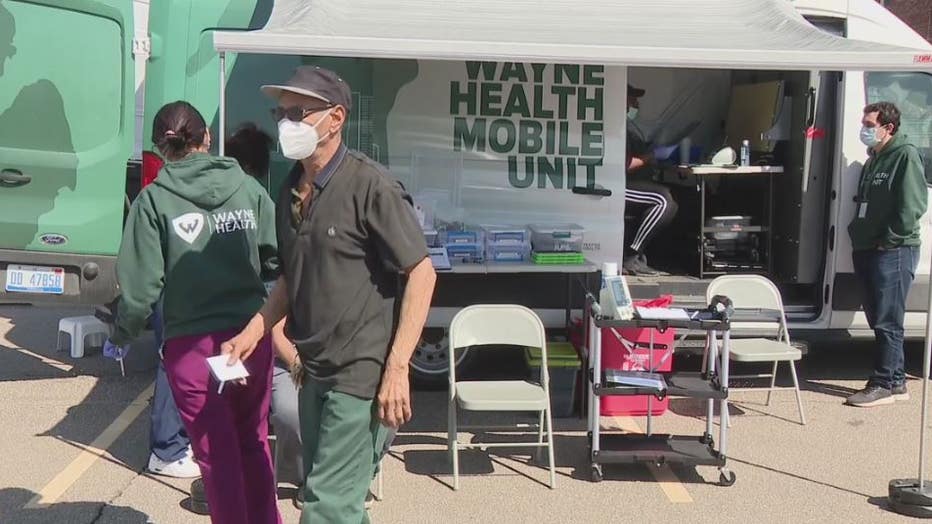Michigan Coronavirus Task Force on Racial Disparities praises impact of WSU Mobile Health Units

State's coronavirus taskforce proud of impact made with mobile health units
Lt. Gov Garlin Gilchrist said that actions taken in 2020 and 2021, resulted in positive outcomes by the Michigan Coronavirus Task Force on Racial Disparities.
DETROIT (FOX 2) - In the early days of the COVID-19 pandemic, state lawmakers formed the Michigan Coronavirus Task Force on Racial Disparities.
"We did not want people to keep dying so we took this action to try and equip those who were most vulnerable and susceptible," said Lt. Gov. Garlin Gilchrist.
At a press conference at Wayne State University on Monday - Gilchrist said that actions taken in 2020 and 2021, resulted in positive outcomes.
"These mobile health units, that was a Michigan invention and innovation," he said. "What that was about, is something our chief medical expert at the time, Dr. Joneigh Khaldun would describe as, the best public health being the health you take to the public."
Gilchrist says the task force and its work inspired others across the country.
"The state of Maryland has enacted specific work based on our work in urban communities, the state of Colorado has enacted specific work based on what they learned from us in Michigan in their indigenous and tribal nations," he said.
And while there is still work to be done, members of the task force say they have seen improvements in racial disparities when it comes to healthcare.
"With COVID-19 the data speaks for itself the outcomes we saw in that first wave were startling, and with every subsequent wave of Covid, we were able to reduce those disparities and outcomes," said Dr. Natasha Bogdasarian, chief medical executive.
"The biggest takeaway from this experience is that we can make progress when we try," Gilchrist said.
"We are not saying that race is a risk factor," said Dr. Renee Canady, CEO Michigan public health sector. "Quite candidly, race is not the risk factor - racism is the risk factor. And the reason why, communities of color, people of color tend to be underemployed, or housed in more vulnerable communities, is because of the historical consequences."


